Who is a livestock technician and what does he do?
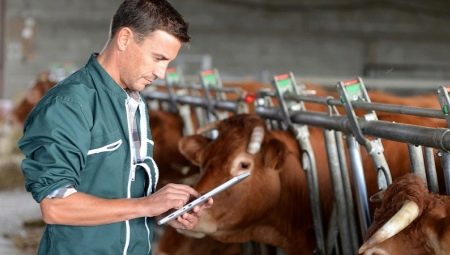
In the XXI century, despite the development of high technologies, the profession is still appreciated, without which it is impossible to imagine any agriculture and it is called a zootechnician. This specialist works in the field of animal husbandry and solves important problems related to breeding, keeping, feeding and treating farm animals. In addition, modern livestock breeders are versed in breeding issues, and also keep under control the production processes of products obtained from livestock raw materials. In this article, we will consider who a zootechnician is and what he does.
Description
The definition of the profession of a livestock technician is quite multifaceted, since this work includes not only raising livestock and poultry, but also covers beekeeping, horse breeding, considers the issues of storing feed, treating animals, and a livestock breeder, in addition to everything, is also engaged in breeding livestock ... Summarizing all the duties of a livestock technician, these specialists are sometimes called livestock breeders. The labor of these people is useful to society, since with their help in the countryside there is an effective and profitable use of livestock resources in order to obtain meat and dairy products of decent quality.
By and large, a zootechnician is a specialist in animal husbandry, differing from a veterinarian in that his knowledge is aimed not only at maintaining the health of the livestock entrusted to him, but also at increasing its number and efficiency in terms of the production of meat and dairy products.
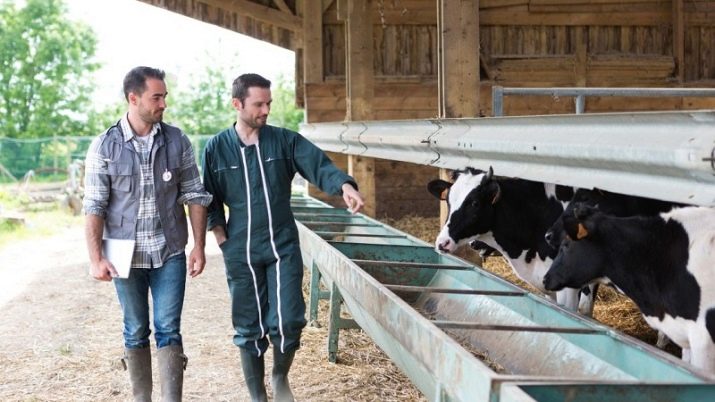
The essence of the zootechnician's work is reduced to the implementation of 4 main duties related to the issues of interaction with farm animals, namely:
- content - a specialist in animal husbandry must ensure the creation of the necessary conditions for the livestock or poultry entrusted to him, so that they develop correctly, grow well and can give birth;
- feeding - a zootechnician develops a nutritional system and provides the animals with the required diet, rich in vitamins and microelements; in addition, the specialist calculates the annual feed requirements and participates in the process of their procurement;
- breeding - having mastered the basics of bioengineering, the specialist conducts breeding work, choosing the best representatives of the breed to obtain new offspring from them; in some cases, a livestock technician can take biological material for crossing individuals in another breeding farm;
- usage - this issue is considered from the point of view of obtaining the maximum benefit from the cultivation and maintenance of livestock, which brings profit to livestock farming.
In addition to the main tasks listed, the zootechnician also deals with issues of private zooengineering related to breeding bees, raising sheep, horses, special breeds of poultry, and so on. Still, the main goal of a zootechnician is not to breed animals and birds, but to control the existing livestock in the farm entrusted to him. Today, livestock specialists work in every farm of the agro-industrial complex.
Such a position presupposes life in the countryside, but the head offices of many modern farms can be located in the city.
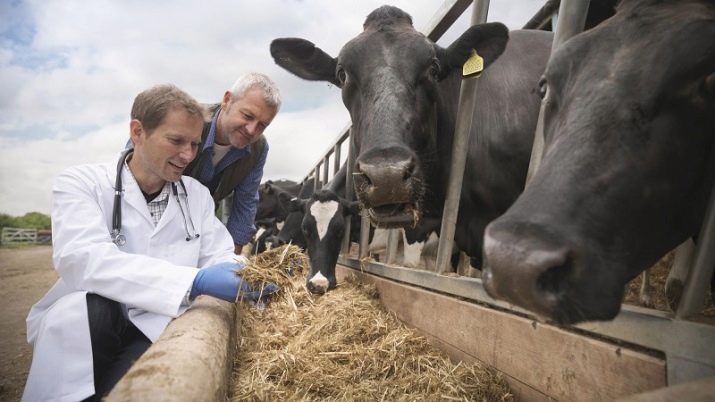
Job responsibilities
A zootechnician is engaged in fulfilling his duties related to caring for animals, on agricultural holdings or on farms. The occupation of this specialist is regulated by the ETKS professional standard, implies fundamental knowledge in the field of anatomical and physiological characteristics of agricultural breeds of animals and birds, as well as possession of the skills of zooengineering, veterinary medicine, genetics, and biology. Depending on the size of the agro-industrial complex, the organization of labor in it may provide for the work of several ordinary livestock specialists, who are supervised by the chief livestock breeder, while each specialist does his part of the work and performs his functions.
The standard job description of a livestock breeder is to fulfill the following duties:
- carries out the management of the livestock section, carrying out all the necessary organizational measures and technological processes;
- makes up the daily feeding ration of the entrusted livestock, and also monitors the quality of the feed base;
- takes measures to reduce the natural loss of livestock, optimizes the costs of its maintenance, increases the productivity of animals and the quality of livestock products;
- learns new technologies of work and implements their application in practice;
- evaluates the efficiency of the livestock complex, prepares quarterly and annual plans, reports;
- carries out work on selection and genetics, is engaged in breeding animals and birds;
- controls the growth and development of young animals, monitors the health of the entire livestock;
- controls the rational use of the fodder base, monitors the condition of pastures, controls the procurement of the necessary materials for wintering, checks the condition of the equipment;
- bears responsibility for its own safety practices and entrusted livestock, complies with labor protection regulations.
A more detailed list of tasks is reflected in the job description, depending on the area of work of the livestock technician, as well as on the type of livestock with which he is assigned to work. The work of a breeder is varied and interesting, but it also involves a lot of responsibility.
The work of a livestock technician is not easy and is associated with dust, dirt, unpleasant odors, and hard physical work.
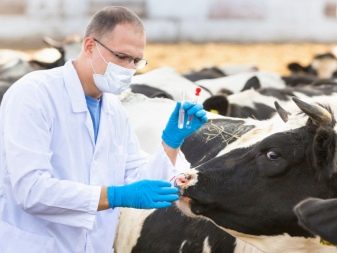

Despite the fact that the working day for a livestock technician has a standard, in reality this specialist should always be ready, if necessary, to come to his workplace and solve the necessary tasks. In addition, agro-industrial complexes are located outside the city limits, so the livestock technician has to move to live in the countryside.
Those who dream of devoting their lives to animal husbandry should find out the pros and cons of this profession. The positives are as follows:
- demanded and interesting job for those who love animals;
- a large number of vacancies in all regions of the country with low competition;
- low competition and a large number of places for budget education;
- the profession has no gender differences and is suitable for both women and men;
- the possibility of rapid career growth;
- support in obtaining housing for young professionals;
- government funding for new projects;
- interest in the industry from commercial structures.
The negative sides are manifested in the following:
- difficult working conditions, it is often necessary to work on the street at any time of the year;
- physical activity and the likelihood of injury when working with large animals;
- over time, due to difficult working conditions, occupational diseases arise.
As a rule, those people who love animals go to study for the specialty of zootechnics. This profession implies a penchant for such sciences as biology, zoology, genetics, veterinary medicine. The character of a specialist should have a high proportion of purposefulness and a high degree of responsibility. A good specialist is constantly striving to improve his knowledge, is interested in new methods of animal husbandry, and improves his professional skills. The zootechnician analyzes a lot of scientific literature, is interested in new equipment, adopts the experience of foreign colleagues. This profession implies constant involvement and a desire to develop, to be able to quickly find the necessary information and analyze it.
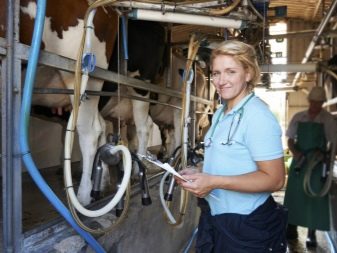

What should I know?
When hiring a livestock specialist, the employer expects from him deep knowledge and certain aspirations, namely:
- the specialist must have fundamental theoretical and practical skills in the field of animal husbandry, confirmed by a diploma of obtaining a specialized higher or secondary specialized education;
- a zootechnician is expected to know modern feeds - their combination, dosage, characteristics, as well as animal consumption rates;
- knowledge of the basics of veterinary medicine, selection, genetics is necessary.
Important! Preference is given to specialists with higher specialized education, since the training base in this case meets the modern requirements for setting up work in the conditions of the agro-industrial complex.
Studying at a higher educational institution for 4 years, students receive the following versatile knowledge, which they further use for successful work:
- 1st year students study in detail such disciplines as botany and biology, morphology and zooanalysis, as well as a number of other specialized subjects;
- 2nd year students master the anatomy and physiology of animals, the basics of biometrics and agronomy, biochemistry and biophysics, an initial course in veterinary medicine, ecology, as well as beekeeping, horse breeding, genetics and zoology, the basics of automation and mechanization;
- 3rd year students will have to study in more detail the breeding of animals and their feeding, gain knowledge on the basics of rabbit breeding and fish farming, master the nuances of dairy production, study immunology and microbiology, zohygiene and other subjects;
- 4th year students study pig breeding, sheep breeding, cynology, poultry and goat breeding, get acquainted with the basics of meat processing technology, dairy production, study animal habits, and also acquire the necessary knowledge in the field of management.
Important! While studying at a specialized educational institution, all students take a course of practical training on the basis of agro-industrial farms.
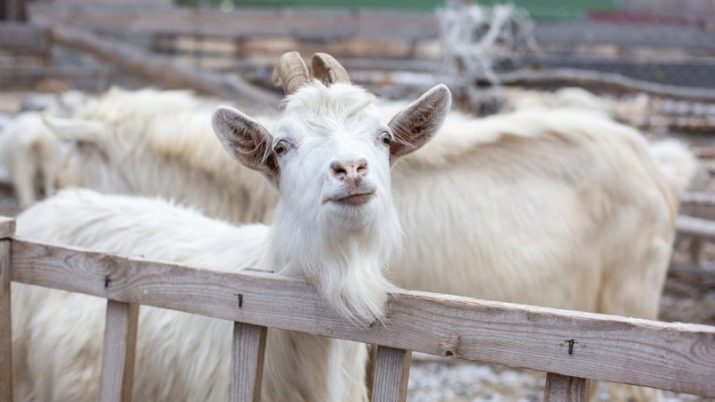
Education
The specialty of a zootechnician can be obtained by graduating from a college or a specialized university. Admission of applicants is carried out according to the results of the exam, each educational institution has its own selection criterion and you should familiarize yourself with these requirements in advance. You can start training after 9 classes at a technical school or after 11 classes at a university. The technical school program is designed for 46 months. after the end of 9 classes and for 34 months. after finishing 11 classes. At the university, training will be 4 years. You can study in person or remotely. To enter the university, they pass the exam in the Russian language, mathematics, and also require an assessment of knowledge in chemistry or biology (at the discretion of the university). Having received the specialty of a zootechnician, you can take retraining courses for new profiles related to agriculture, beekeeping, fish farming, and so on.
You can get a higher education in the specialty "Zooengineering" or "Zootechnology" in the following universities:
- Yaroslavl Agricultural Academy;
- Kemerovo State Agricultural Institute;
- St. Petersburg State Agrarian University;
- Ivanovo Agricultural Academy;
- Irkutsk State Agrarian University.
Secondary specialized education in the specialty "Zootechnology" can be obtained in the following educational institutions:
- Agricultural College of Khakass State University named after N. F. Katanova;
- Pavlovsk Agrarian College;
- Vladimirsky Agrarian College;
- Tambov Agricultural College;
- Novoanninsky Agricultural College.
To study at a technical school, you will need a certificate with good grades in the humanities, and for studying at a university, in addition to the results of the exam, internal exams may also be provided.
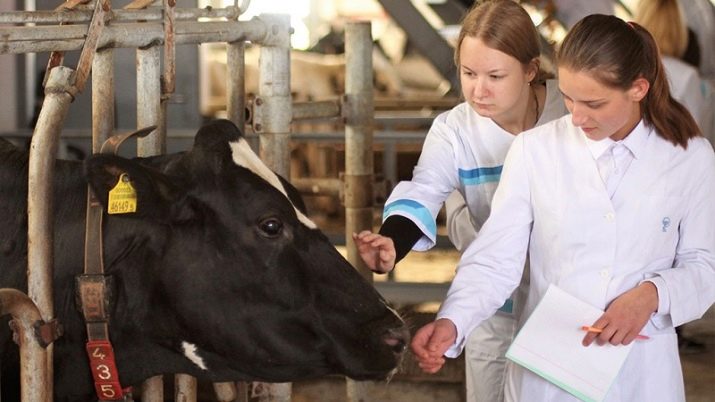
Place of work
A certified livestock technician can find work in agriculture or animal husbandry, in a dairy or poultry farm, even in a circus or zoo. Specialists of this level are in demand in fisheries and pedigree state farms, at stud farms. An experienced livestock breeder can manage a private farm, work in a laboratory that evaluates the quality of agricultural products. In the presence of managerial knowledge and the inclinations of a manager, a livestock technician can organize his own business or engage in scientific activities.
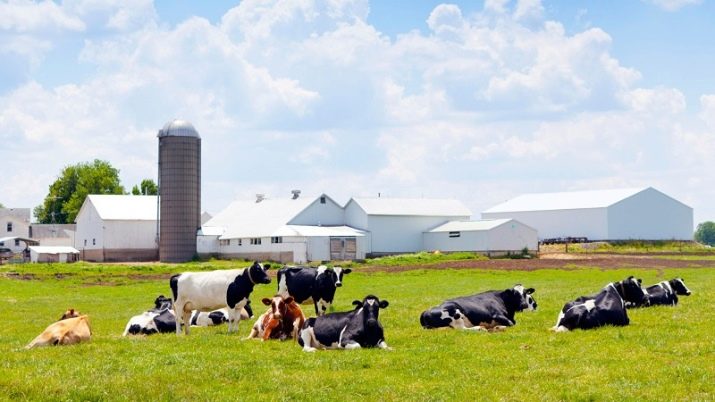
What is the average salary?
Livestock breeders are always in demand on the labor market in Russia. Their earnings largely depend on knowledge, experience, additional qualifications, as well as on the region where they work. The average salary is 20,000 rubles, this money is received by young specialists who have recently graduated from a university. Over time, having become the chief specialist of an agricultural holding, a livestock breeder can earn at least 130,000–150,000 rubles. monthly. In regions with harsh climatic conditions, specialists receive premiums. For example, in Yakutia or Chukotka, there is a strong shortage of personnel, so specialists are attracted by high earnings, about 40,000-50,000 rubles.









